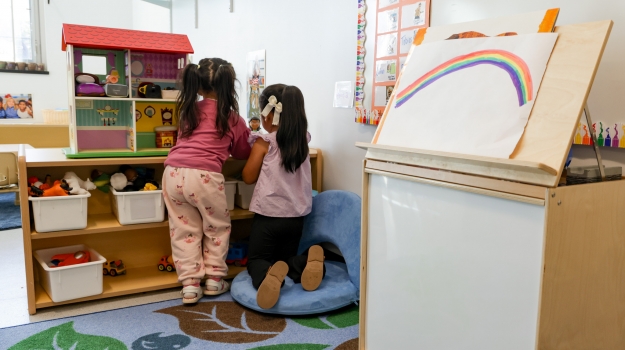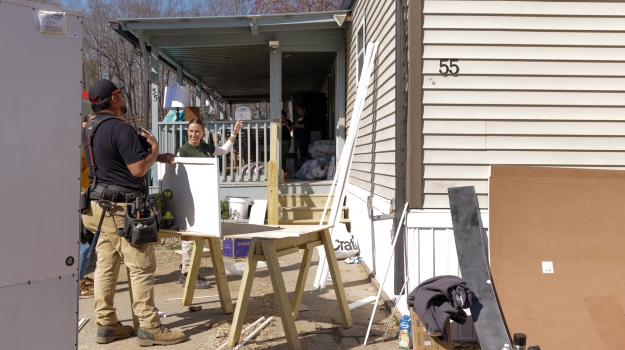Imagine a very long line of infants and toddlers standing outside, waiting to get into a building. 980 children in fact. Imagine that adults in communities across the state looked at those lines every day and the only way they could get one child out of the line was if another child was removed from the service they were waiting for.
Federal Shutdown Impact
When the federal government shut down a few months ago, North Carolina quickly notified counties that funding for child care subsidies would stop. That meant county governments had to figure out if they could find local funds to continue the program. Now federal dollars are again being directed to child care. But in that short period, some parents lost their child care and some lost their jobs as a result. It was made clear that the state of North Carolina lacks any real commitment to such support for parents and their preschool children. In fact, even on a good day, North Carolina provides only the minimum state match required and has offered no expansion of funds in recent years.
What are Child Care Subsidies?
A subsidy is a partial payment for the cost of child care. When a family meets the qualifications which are based on income, employment and/or enrollment in school, the state will help them cover the cost of child care. And apparently families think the program has value. There are over 34,000 eligible North Carolina children unable to access child care subsidies. In Buncombe County approximately 980 children birth to age 5 are on waiting lists.
Clearly, families are signing up for the support. Why?
- On a practical level, if you work, you need some plan to care for your pre-school children. People work for lots of reasons: they need the income to pay living expenses, they are making a contribution to the community through their work, they like the mental and/or physical challenge of working, and they are putting their education and training to good use.
- If you are in school, you need care for your children. Many people want to advance their family’s prospects for a good life, and so commit to completing their education. People go to school to earn a degree, learn a trade, master a skill, increase their literacy skills, learn how to get and keep a job, and to be promoted in a career.
- If you know about the importance of those early years in a child’s life, you may want to be sure your child is in a licensed, high quality early care program. People want their children to have opportunities to socialize with other children, access developmental play, learn physical and mental tasks appropriate for his/her age and are guided by a caring child development professional in a healthy, safe and fun setting.
Neighbors and relatives are good options for some families, but that doesn’t always work. Subsidies are for families that do not have the choice to stay home, send their children to relatives during the day, or pay the full cost of care. Securing quality child care is expensive relative to many parents’ income. So families understandably seek out whatever support they can find.
Child care subsidies require elected officials to have vision; a belief in prevention and a longer view. That’s because the results of good child development generally won’t be realized for at least 5 years, and more likely 18-21 years. But there are some significant long term results that state government could realize; Children who become citizens holding jobs, buying houses, starting businesses, purchasing goods, voting….all steps that are needed to support government. Early childhood development is important from many angles.
Take Action
More information is available from the November 7th Action Alert from the NC Justice Center. Go to www.ncjustice.org for more details on advocating for North Carolina support for early child development. Also go to www.first2000days.org for more information on what happens in the first 5 years of a child’s life that require quality early childhood development. It’s when 90% of brain development occurs.
Oh, and if we were to include 6-12 year olds needing after-school support, there would be 1500 children waiting in line.


